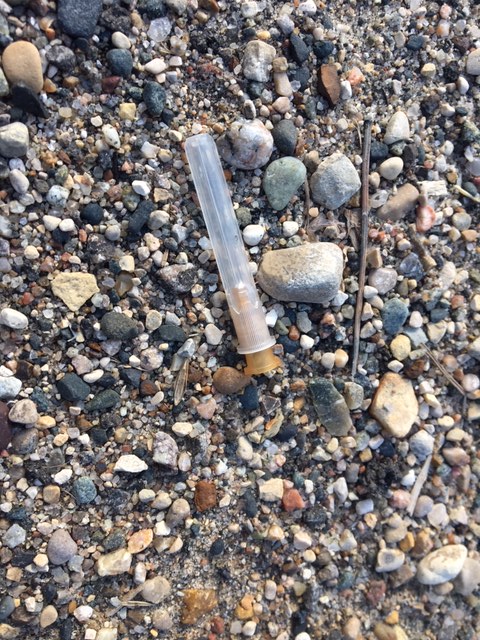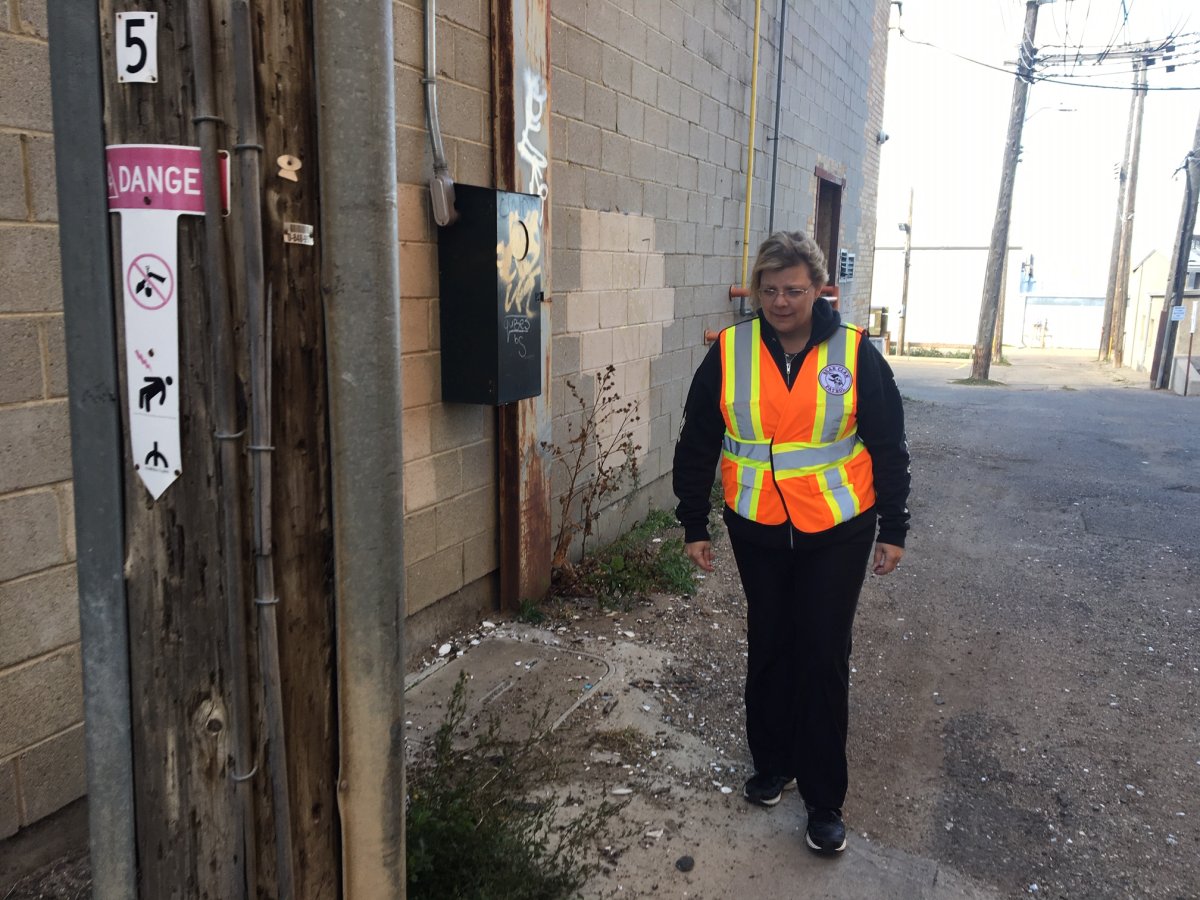It’s a day off for the Brandon Bear Clan, but even when Kim Longstreet is not on patrol, her eyes are constantly scanning the ground.

She’s searching for the tell-tale signs of meth; discarded needles, makeshift spoons often used to cook it, and empty packages that once held syringes.
“Frankly it doesn’t matter where you go in the community, you’re going to find people are using,” Longstreet says as she walks down Rosser Avenue in downtown Brandon.

The Brandon chapter of the Bear Clan formed in the summer of 2017. Its goal is to connect with the community, to hand out health kits and water to some of that city’s most vulnerable, and to just be present should anyone need them.
They patrol Thursday and Friday nights, and they safely pull dirty needles off the streets.
That work is increasing.
In their first six months of operation in 2017, they discarded about 30 used needles. So far in 2018 they’ve found 400 needles.
At times, they’re even pulling them from dumpsters.
“We didn’t do that in the beginning, but then we started realizing that people were taking needles out of the dumpster and using them,” Longstreet says.
When she sees a discarded needle, Longstreet says she can’t help but think of her son.
Four years ago he became addicted to meth and battles that addiction to this day.

Get weekly health news
“To think my son could have used that. That that’s something he could have put onto himself, injected himself…” Longstreet says as she points to a discarded needle in the grass near Rosser Avenue and 6th Street.
“It kills me every time I see that.”
In 2016 Brandon Police Service said it had 15 meth seizures. That grew to 55 in 2017, and to date in 2018, there have been 39 meth seizures.
More meth on city streets means more property crime, according to Brandon’s Police Chief.
“People can’t function when they’re on methamphetamine, and work and be employees, so a lot of the thefts are happening because of this,” Chief Wayne Balcaen said.
“Specifically to some of our garages and sheds and outbuildings … People look for the easy targets and ways to get articles that they can resell,” Balcaen said.
It’s one reason why two new officers have been added to the service; a drug investigator and a youth intelligence officer to deal with exploited youth.
“The exploited youth often get brought in through the use of drugs … and then they’re used to work either out on the street or with clients doing trafficking of themselves. The repayment is drugs,” Balcaen said.
Longstreet believes she’s already noticed that happening in Brandon, along with another worrisome trend.
“A giveaway could be that they’re carrying a bar with them. They could be wearing a heavy chain, with a lock around their neck.”
“That’s a weapon. The psychosis for someone on meth is get them before they get you.”
“So if you’re looking at them in some odd way, they may be hearing you’re going to hurt me. And it’s not them doing it, it’s the psychosis,” Longstreet says.
The mom has watched her son battle that rapid and disturbing change in behavior, and his addiction.
“The very thought of himself doing something to his body, was so foreign to him. He worked out. He ate well, and to succumb to injecting himself with a chemical that’s going to kill you … it’s foreign for both of us to think about.”
WATCH: On the front line of Winnipeg’s Meth Crisis

She’s also witnessed him struggle to detox.
“It’s meth. Meth cannot be cured or helped in 21 days, or 28 days,” Longstreet says. “Meth is a monster that needs specialized treatment … I’ve been advocating for that a lot.”
Specialized treatment in her opinion, is long-term care.
“I mean a year,” Longstreet said.
“This is our problem. It’s everyone’s problem.”




Comments